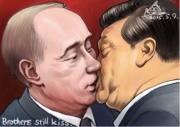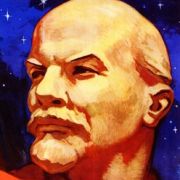|
*in the nick mullen Rain Man voice* definitely. def- definitely a big fund. def- definitely socialism.
|
|
|
|

|
| # ? May 9, 2024 09:57 |
|
GalacticAcid posted:*in the nick mullen Rain Man voice* <dsa member detected> hello, liberal....
|
|
|
|
I was a member but left when they endorsed nixon lol
|
|
|
|
nixon is a softer maoist than you or i will ever be. truly aspirational.
|
|
|
|
Pener Kropoopkin posted:The imperialist core is the United States. US and UK/France/Germany, yeah. think you would need both to fall pretty quickly or capital would just flee to the other and/or nuke the world rather than lose power.
|
|
|
|
cmon matt
|
|
|
|
He's using the word capital to mean the actual thing, raw material, factories, wealth, and not the capitalist class which I feel like people are getting hung up on
|
|
|
|
Sheng-Ji Yang posted:US and UK/France/Germany, yeah. think you would need both to fall pretty quickly or capital would just flee to the other and/or nuke the world rather than lose power. Let them flee, it's not like Taiwan is a threat to China
|
|
|
|
Graphic posted:Does anyone have something concrete on how exactly the economy works in Rojava? I'm curious how it's socialist apart from rhetoric and equal rights for women. obviously a biased source but this is pretty interesting (careful with link it redirected me to some popup) https://mesopotamia.coop/the-economy-of-rojava/ quote:Economic model
|
|
|
|
Sheng-Ji Yang posted:US and UK/France/Germany, yeah. think you would need both to fall pretty quickly or capital would just flee to the other and/or nuke the world rather than lose power. The UK/France/Germany are wimpy little crushing fetishists, and the United States is a morbidly obese woman sitting on their faces and farting until they can't breathe. Karl Barks posted:He's using the word capital to mean the actual thing, raw material, factories, wealth, and not the capitalist class which I feel like people are getting hung up on When people who have read Marx talk about "capital" they're thinking of "capital" as an abstraction in the form of finance capital (to Marx this was more concrete, because money in his day was still a hard currency and not credit produced by fiat). It makes sense that Matt Bruenig doesn't think of himself as being antagonistic to capital, because his big goal is to nationalize finance. But nationalizing finance isn't good enough, because it still depends on the profit motive to perpetuate itself and accumulate value. Nationalization or socialization of finance should only ever be a transitory phase in the development of socialism towards communism, but Matt doesn't see things that way because he doesn't understand Marxism.
|
|
|
|
The US falls to Communism and establishes shabby little socialist client states across Western Europe as capital flees to free Eurasia and Maréchal Putin builds Capitalism In One Country
|
|
|
|
https://twitter.com/MattBruenig/status/1043652295823695872 Everything about this sentiment is hideously, woefully naive. Taking over capital and controlling it democratically is the literal aim of revolutionary socialism. You're not going to think tank and lobby your way into taking control of capital lmao.
|
|
|
|
wrong https://twitter.com/MattBruenig/status/1043708525036417024
|
|
|
|
Pener Kropoopkin posted:The UK/France/Germany are wimpy little crushing fetishists, and the United States is a morbidly obese woman sitting on their faces and farting until they can't breathe. I don't think Bruenig even considers himself an orthodox Marxist though, so I don't think he's thinking of it in those strict terms. I might have missed a tweet (and I didn't read the economist article) but I don't think he's claiming to be talking about marx explicitly, ie. this is what Marx thought
|
|
|
|
Karl Barks posted:I don't think Bruenig even considers himself an orthodox Marxist though, so I don't think he's thinking of it in those strict terms. I might have missed a tweet (and I didn't read the economist article) but I don't think he's claiming to be talking about marx explicitly He's talking about finance capital. Oh cool, just keep winning elections in a bourgeois democracy and never lose to a right wing party. So simple.
|
|
|
|
tbf the socdems in scandinavia consistently won until they all turned neoliberal and suddenly started losing.
|
|
|
|
Pener Kropoopkin posted:He's talking about finance capital. where is he talking about finance capital? when he talks about a SWF? hey, no one said it would be easy. the other options aren't great either!
|
|
|
|
Sheng-Ji Yang posted:tbf the socdems in scandinavia consistently won until they all turned neoliberal and suddenly started losing. Just magically decided to be neoliberal?
|
|
|
|
Pener Kropoopkin posted:
yes this is how democracy works. the two choices are democracy or monarchy. pick one. EDITORS NOTE: xi jinping is not king of china, which is a democracy
|
|
|
|
Pener Kropoopkin posted:Oh cool, just keep winning elections in a bourgeois democracy and never lose to a right wing party. So simple. also the most all-powerful class in the history of the world, with trillions at risk and also at their disposal, who are willing to let billions die and live in misery for the sake of their profits, definitely has no survivial instinct or means of reprisal and repression. they will totally step down and go to work at an iron mine when "The Socialism Act" is passed in congress.
|
|
|
|
Graphic posted:also the most all-powerful class in the history of the world, with trillions at risk and also at their disposal, who are willing to let billions die and live in misery for the sake of their profits, definitely has no survivial instinct or means of reprisal and repression. they will totally step down and go to work at an iron mine when "The Socialism Act" is passed in congress. presumably there would be a political movement behind the socialism act that gives it some oomph
|
|
|
|
Graphic posted:also the most all-powerful class in the history of the world, with trillions at risk and also at their disposal, who are willing to let billions die and live in misery for the sake of their profits, definitely has no survivial instinct or means of reprisal and repression. they will totally step down and go to work at an iron mine when "The Socialism Act" is passed in congress. luckily we have found their one weakness: staying inside and Posting
|
|
|
|
“cuba, but in a rich country” imo
|
|
|
|
Infernot posted:Just magically decided to be neoliberal? no, no magic involved at all
|
|
|
|
Karl Barks posted:presumably there would be a political movement behind the socialism act that gives it some oomph the only oomph that the capitalist class would respect is the credible threat of violent revolution if they don't give in to the popular will; the threat of cutting their heads off if they resist expropriation. otherwise you're just shaming/begging them into following the rules like a democrat. these people barely adhere to the laws we have now and that's with the entire system tailor made to suit their interests.
|
|
|
|
Graphic posted:the only oomph that the capitalist class would respect is the credible threat of violent revolution if they don't give in to the popular will; the threat of cutting their heads off if they resist expropriation. otherwise you're just shaming/begging them into following the rules like a democrat. these people barely adhere to the laws we have now and the entire system is tailor made to suit their interests. sure that can happen along the way, i'm not saying it can't or shouldn't
|
|
|
|
It’s crazy how all the social democratic parties around the world just independently decided to become neoliberal
|
|
|
|
GalacticAcid posted:It’s crazy how all the social democratic parties around the world just independently decided to become neoliberal yeah thats what i said
|
|
|
|
Graphic posted:the only oomph that the capitalist class would respect is the credible threat of violent revolution if they don't give in to the popular will; the threat of cutting their heads off if they resist expropriation. otherwise you're just shaming/begging them into following the rules like a democrat. these people barely adhere to the laws we have now and that's with the entire system tailor made to suit their interests. reporting this vile post to the FBI. you're finished sucker
|
|
|
|
Sheng-Ji Yang posted:yeah thats what i said you said it didnt involve magic, which is laughably wrong. read up on chaos magick and you'll see the truth about the IMF
|
|
|
|
Sheng-Ji Yang posted:yeah thats what i said No I said it, just noting it to marvel at how crazy it is
|
|
|
|
it's hilarious to me that a progressive dem like Matt and an anti-abortion tradcath like Liz have so much of the online left rose emoji crowd wrapped up in their bullshit lol
|
|
|
|
ShriekingMarxist posted:it's hilarious to me that a progressive dem like Matt and an anti-abortion tradcath like Liz have so much of the online left rose emoji crowd wrapped up in their bullshit lol yeah i mean the online left rose emoji crowd generally doesn't get wrapped up in bullshit so this is out of character
|
|
|
|
GalacticAcid posted:It’s crazy how all the social democratic parties around the world just independently decided to become neoliberal it makes you wonder how much governments really interferes in their own politics, passively, directly, or otherwise. the UK Labour party situation is a perfect example. many of the party MPs and a large portion of the party membership never actually did go neo-liberal, it seems like just the face of the party changed with the succession of imperialist pro-capitalist goons. were they bribed? subtly cultivated? i don't know why they were there. but it turns out the Labour constituency actually wanted someone like Corbyn. in what was the First World, social welfare never existed because it was the moral thing to do, it existed to stave off revolutions. the threat was especially pronounced with the Soviet Union around that had a gigantic state-funded aparatus that could stoke workers' disaffection. so during the Cold War the ruling class saw the necessity of having social democratic politics and parties to act as a pressure release valve. but it really seems like the fall of the USSR is when they started to infiltrate and mutate left wing parties into parties that are non-hostile to the capitalist and imperialist world order, and to offer harmless social victories as an outlet.
|
|
|
|
Slanderer posted:yes this is how democracy works. the two choices are democracy or monarchy. pick one. I choose making liberalism illegal. GalacticAcid posted:It’s crazy how all the social democratic parties around the world just independently decided to become neoliberal Sweden was hit by a major financial crisis in the early 90s because the bubble burst on a real estate boom that had been cultivated in the 80s through over-lending. They resorted to neoliberalism because the GDP was declining at a rate which was unsustainable with all their welfare obligations, so they cut spending to get their budget under control. Sweden still has an extensive welfare system, but it's not what it used to be. http://www.oecd.org/employment/emp/38749309.pdf In 1991 the unemployment rate in Sweden was 1.7%, and then it shot up to almost 10% due to the crisis and has hovered around 5 since then in the wake of reforms. 6% of Swedish workers also have low pay, which performs a lot better than other OECD countries but the fact it happens at all is a serious concern. Even in conditions where you have a vibrant social democracy, you cannot avoid a crisis of capital which will be seized upon by liberal reformists. Matt's ideal conditions can't achieve the overthrow of capitalism, because as long as capitalism is allowed to exist in any form it will reify itself through crisis.
|
|
|
|
ShriekingMarxist posted:it's hilarious to me that a progressive dem like Matt and an anti-abortion tradcath like Liz have so much of the online left rose emoji crowd wrapped up in their bullshit lol hes a good poster and hes good at what he does, which is make simple graphs that show how brutally unequal american capitalism is and organize harassment campaigns of twitter libs. luckily we dont have to be purist assholes about everything all the time.
|
|
|
|
Sheng-Ji Yang posted:hes a good poster and hes good at what he does, which is make simple graphs that show how brutally unequal american capitalism is and organize harassment campaigns of twitter libs. luckily we dont have to be purist assholes about everything all the time. we don't but we can still harmlessly laugh at him for thinking socialism is when the government does stuff
|
|
|
|
This sounds like opportunism, too me 
|
|
|
|
what is opportunism, too you
|
|
|
|

|
| # ? May 9, 2024 09:57 |
|
*Brad Pitt as Lenin points at the Winter Palace* Opportunity...take it! It’s yours!
|
|
|











